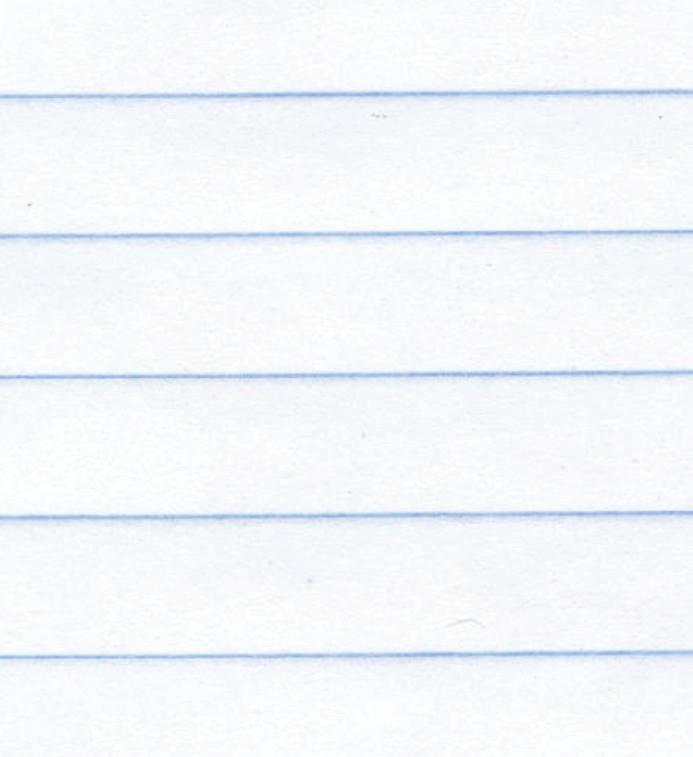
6 minute read
Hunting Regulations
To hunt or not to hunt
Indiana issues rst lifelong hunting ban to 25 year old poacher
Advertisement
Emerson Elledge elledeme000@hsestudents.org

For the rst time ever, the state had issued a lifelong hunting suspension to 25 year old Hanson Pusey in West Lafayette. e crime that issued his ultimate sentence was hunting without permission, as well as the of a trail camera card, in Warren County, according to Fox59. e ban did not appear out of the blue, as Pusey had been illegally hunting in seven di erent states for the last three years. “It makes me happy that Indiana actually stood up to something that is an issue instead of ignoring it,” sophomore Ava Heeg said Pusey’s sentencing involves house detention, lifelong suspension and a multitude of fees. What made Pusey’s case so unique is the sheer amount of evidence that was found incriminating him. “ e problem with [poaching] is like any law, [say] it’s speeding, you give a ticket and they still speed,” former study hall teacher Lloyd Byrd said. You have to make it worth your while. [With poaching, the enforcement] starts taking points from your license. In this case, a lifetime ban is probably a good message to send and [if] you keep doing it, we’re gonna jack it up. What one person will laugh o because they got a $300 ticket versus a kid who gets a $30 ticket and freaks out. [Punishments are about] understanding the severity of what you’re doing.” Poachers are discovered and incriminated by game wardens. Game wardens are assigned a patch of land which they have been instructed to patrol to investigate for hunters. “Game wardens will come to you and rst ask to see your hunting license,” Byrd said. “If you have no deer tags and still have a hunting license, and you have a deer with you or something that you killed, you’re gonna get in trouble. I know one story where a gentleman who was poaching deer had a huge truck atbed. Now if you’re from the farm, [a] truck’s a very important thing and they con scated his truck. He actually had to pay over $5,000 to get it. [ e wardens] always say hit him where it hurts, and most o entimes, that’s in the wallet.” With this monumental ban occurring, a renewed conversation over the ethics of poaching and hunting has spawned, creating a discussion including hunters and nonhunters alike. “I don’t really agree with [hunting],” junior Morgan Reilly said. “It’s super violent for no reason. When little kids kill small animals, they get checked for mental problems, but when older kids/adults kill animals for fun it’s totally normal.” People hunt for a variety of reasons. e three general ones tend to be a combination of the following: for food/survival, for sport/fun and for animal population maintenance. “I believe hunting is a great sport,” junior Jake Dick said. “ e thought of hunting down animals for fun/sport is a way of doing what [humans] used to have to do to survive, with the circumstances being the only di erence. One was to survive, the other to honor the old ways.” Some people, like Heeg, agree with hunting for certain reasons, but not other reasons. For example, the National Library of Medicine found that 87% of Americans supported hunting for food, but only 37% agreed with hunting for sport. “I’m not the biggest fan of [hunting]. It’s ne if it’s part of people’s culture, but I don’t like that it’s considered a sport, or that people go do it for fun,” Heeg said. ere can also be health risks associated with hunting. According to the Mayo Clinic, hunters are most commonly put at risk for heart attacks, injured backs and broken bones. Another health risk is brucellosis, which is a bacterial infection caused by bacteria from injured animals. “I think [hunting is] bad because if the [hunters] don’t eat it, then there was really no reason for the animal to die. But if they do eat it, [the hunters could easily process the meat wrong and get food poisoning. Last year, my entire family got food poisoning from one of my stepdad’s friends’ deer meat that he processed himself,” Reilly











said. Another worry of those against hunting is the impacts that it has, both on the world and the hunter. Reilly believes that some potential environmental consequences include a rapidly decreasing population of animals leading to the butter y e ect on the food chain, but also believes that hunting can have drawbacks on the hunter’s mental health. “People who go out to hunt as much as possible and are constantly killing animals, [that] cannot be good for their mental health,” Reilly said. “ e amount of death and blood someone would see from the constant hunting would eventually desensitize them to human blood and death, potentially making them violent towards people and not just animals.” For some, the line between hunting and poaching is blurry, despite the legal di erence between them. Hunting is de ned by Oxford Dictionary as “the activity of hunting wild animals or game, especially for food or sport,” whereas poaching is de ned by National Geographic as the illegal tra cking and killing of wildlife. “Poaching is disgusting and those who do it should face criminal consequences,” Dick said. “ e line [between hunting and poaching] should be drawn when it is for an event that raises money for the better side, [with] poaching being when someone is hunting for personal gain. Hunting should be when he game is going towards a community item such as charity. Even if there is a prize for someone who brings in the biggest catch.” Simply put, the key di erence between poaching and hunting is the possession or the lack thereof of a license. According to Byrd, the process of obtaining a license for deer hunting speci cally, although a timeconsuming process, is by no means a di cult one, compared to that of receiving a driver’s license. “[A person has] to go and present their driver’s license,” Byrd said. “[ e administration] will do a background check to make sure that [the person is] not like a wacko or someone who has a problem with authority, because we’re all supposed to follow the rules. Once that’s done, there is a period, I think it’s four to six weeks, before you actually get your license.” Reilly believes that in order for there to be long-term solutions for eliminating poaching and excessive hunting, it should start from the ground up with accessibility. “If someone just feels the need to shoot something, shooting a target is much better than an animal,” Reilly said. “ e issue [of poaching and excessive hunting] could be stopped by having potentially more shooting ranges that are more accessible to people. Since it doesn’t cost much to go out and hunt in the woods, reducing prices for shooting ranges and at-home targets could be bene cial to the state of the environment that has been harmed from hunting.”














